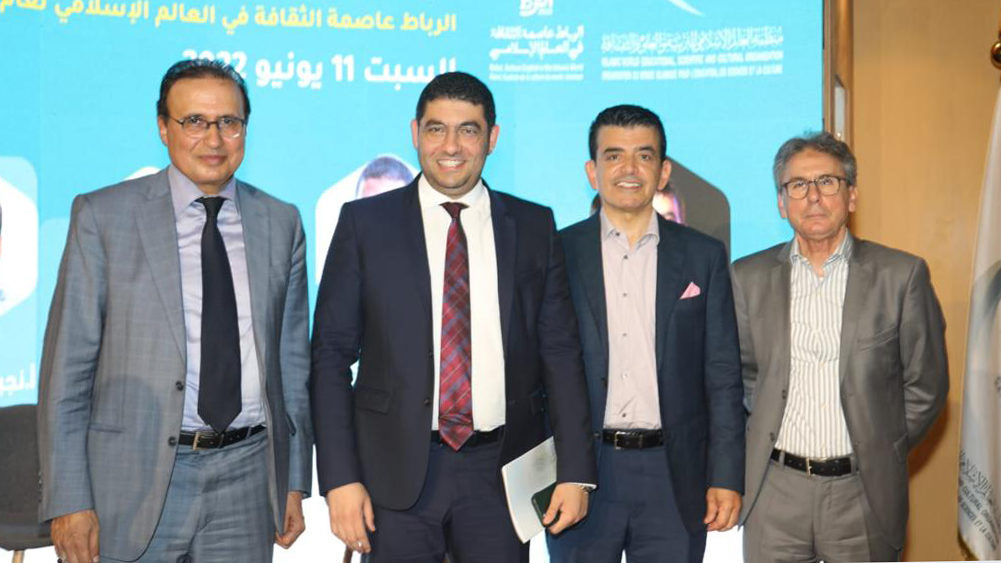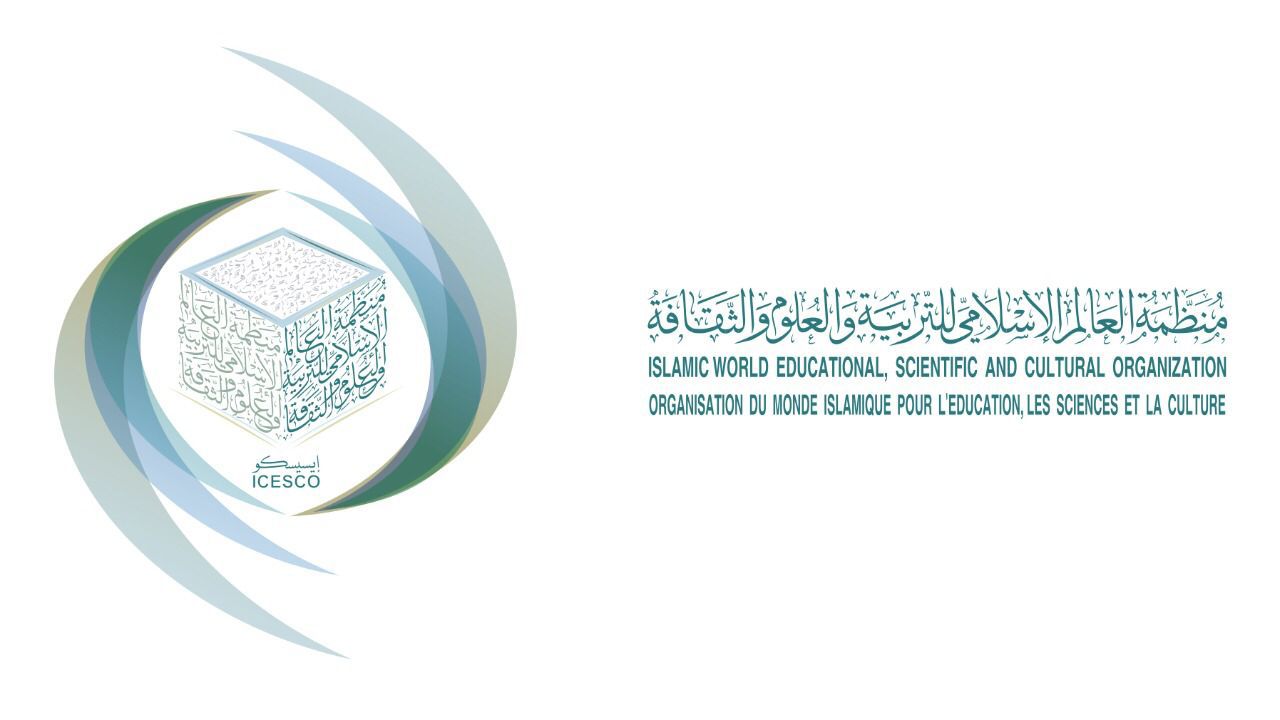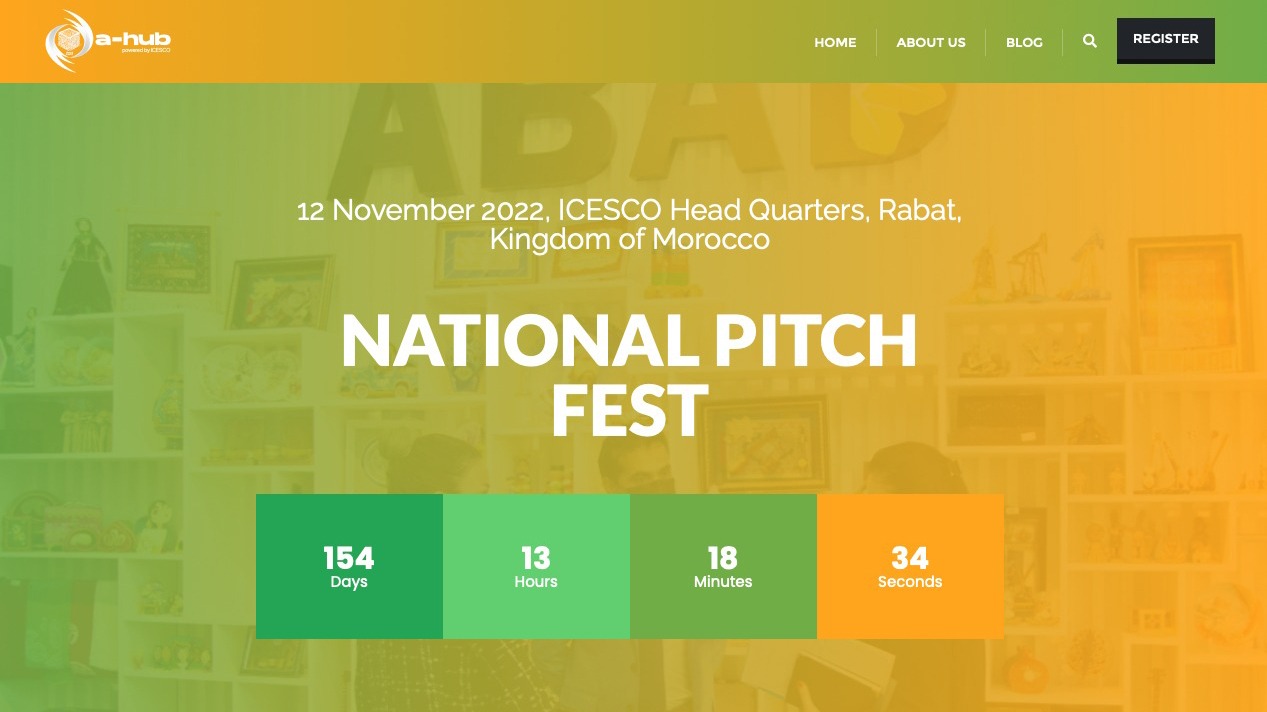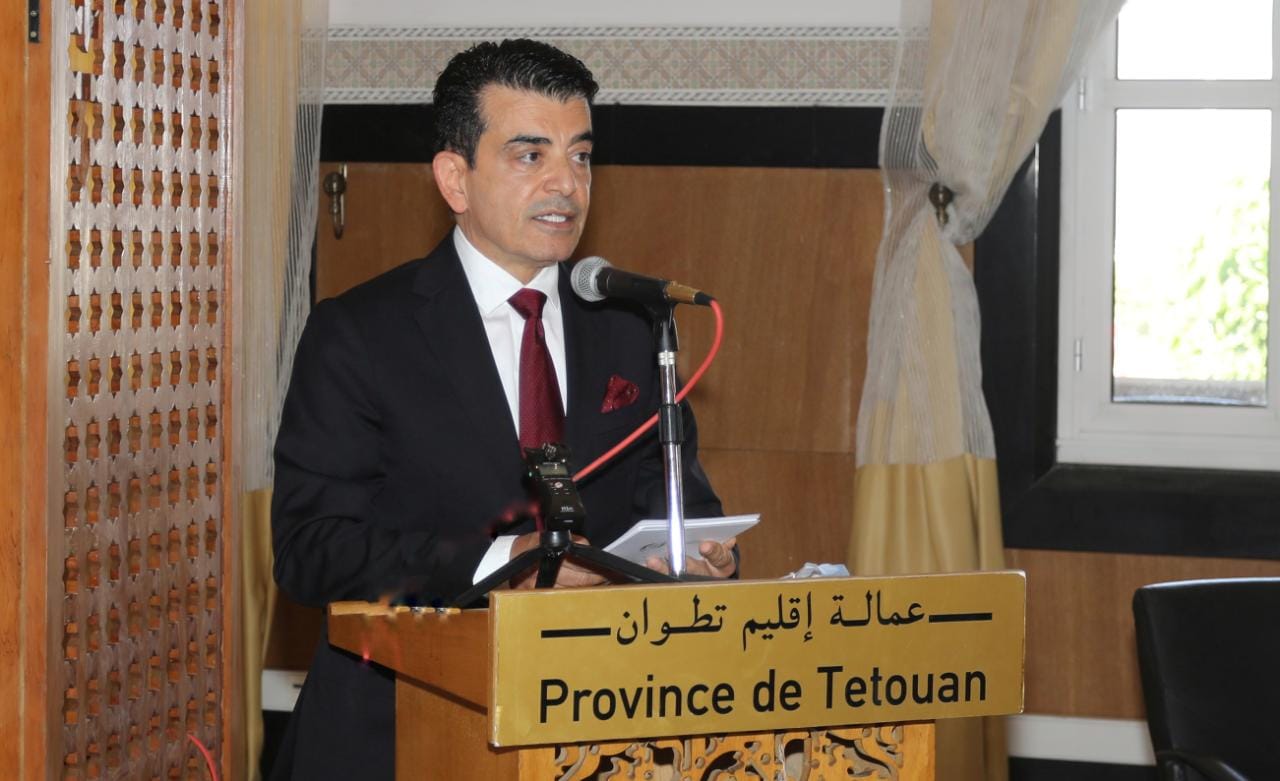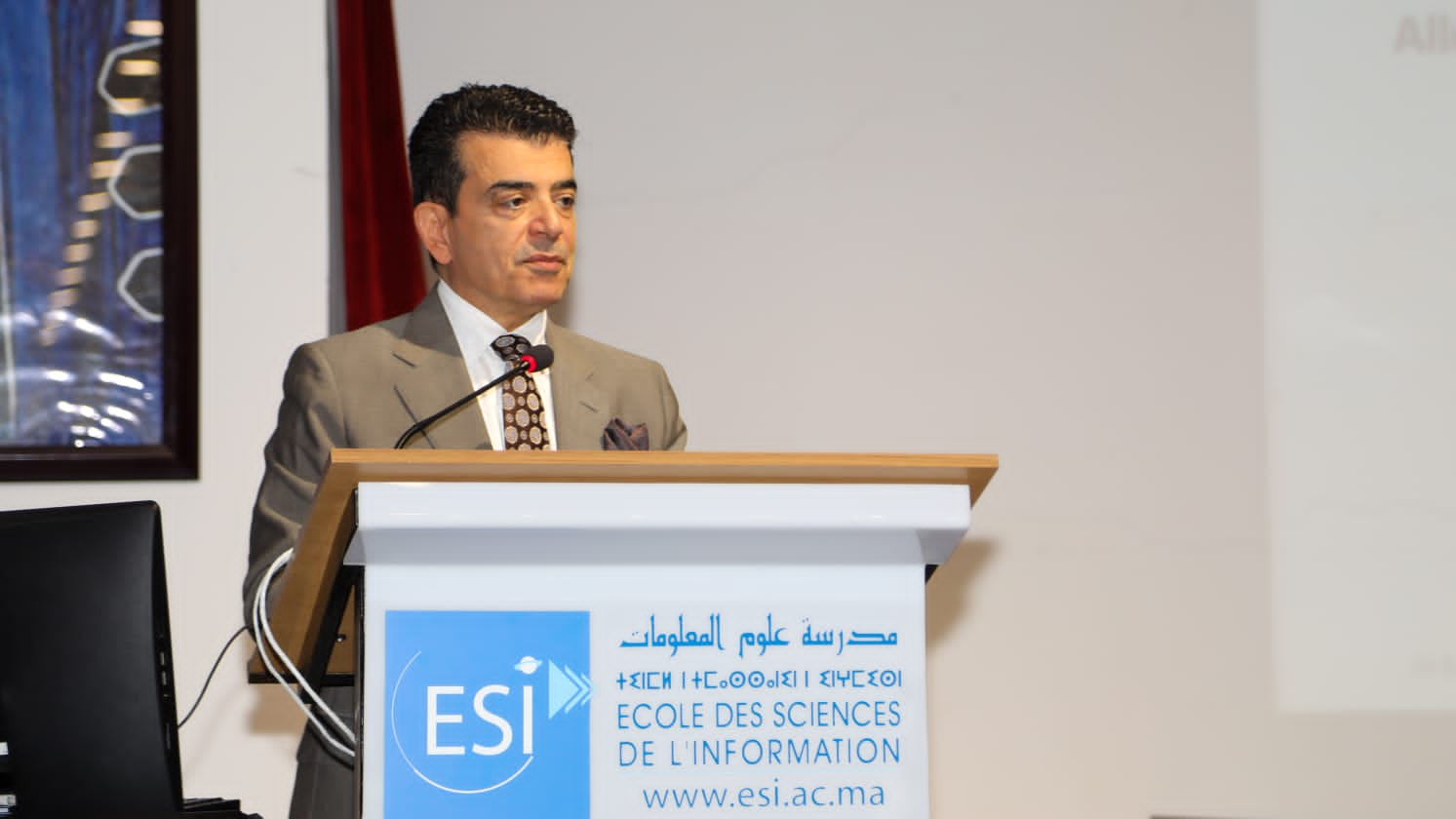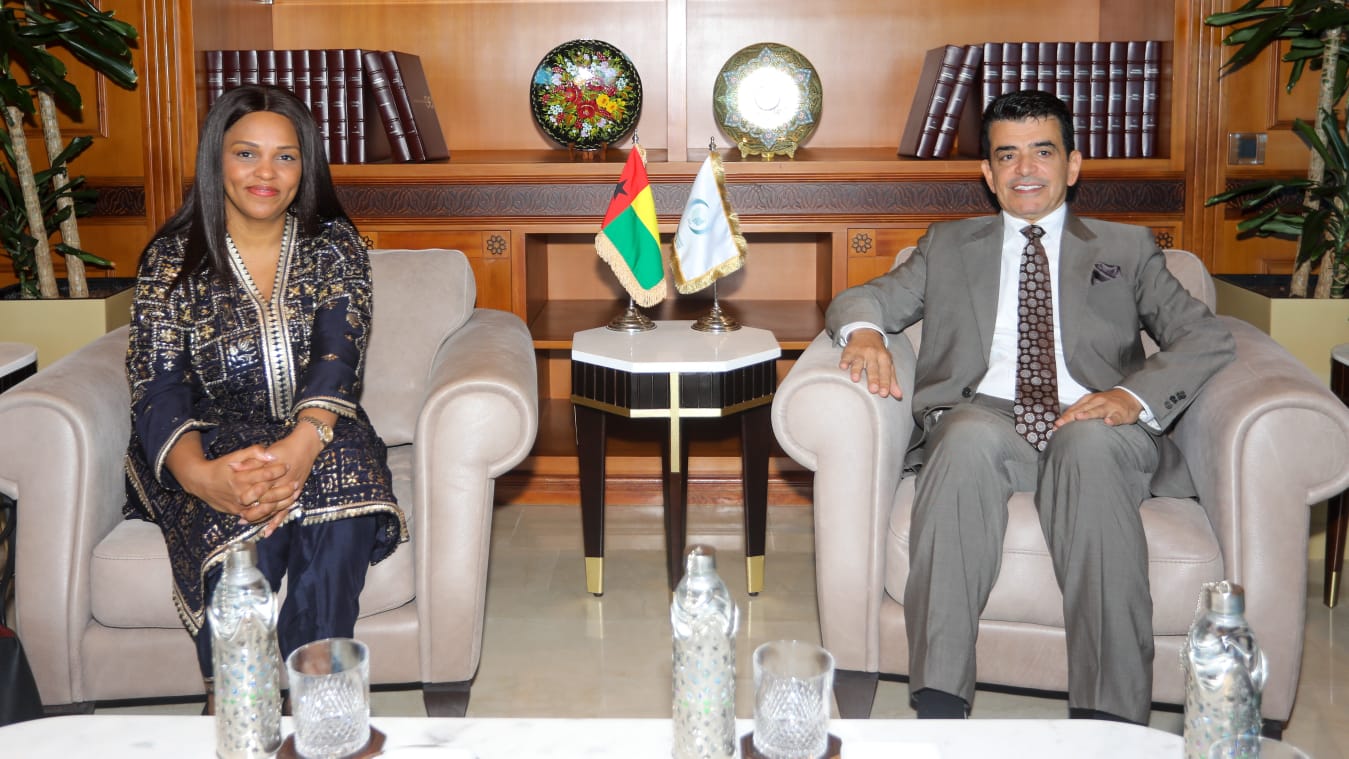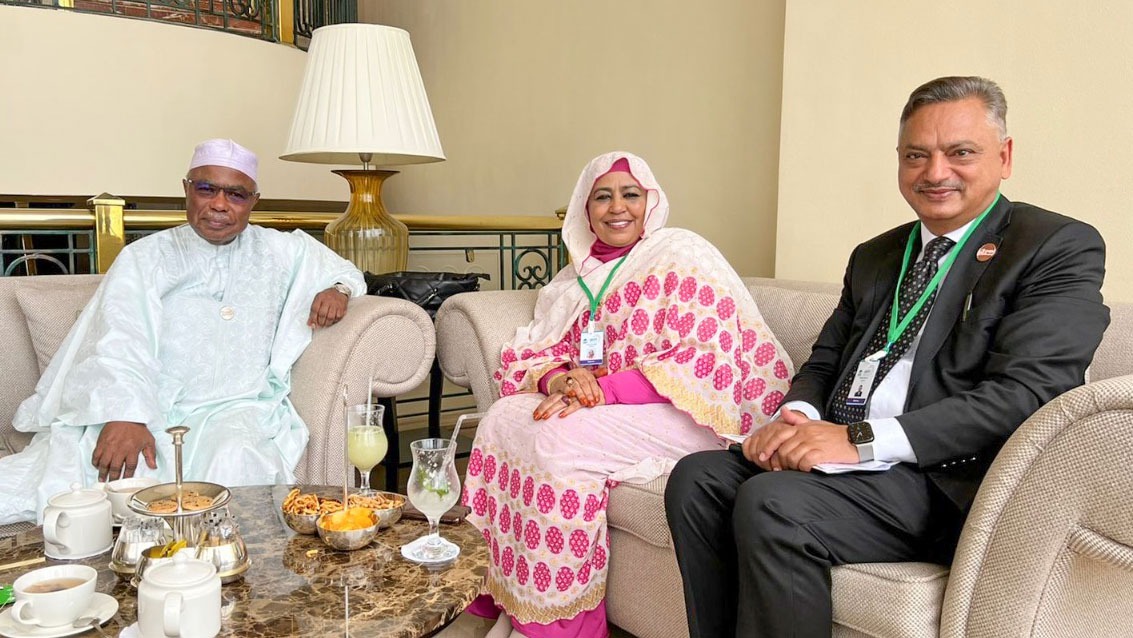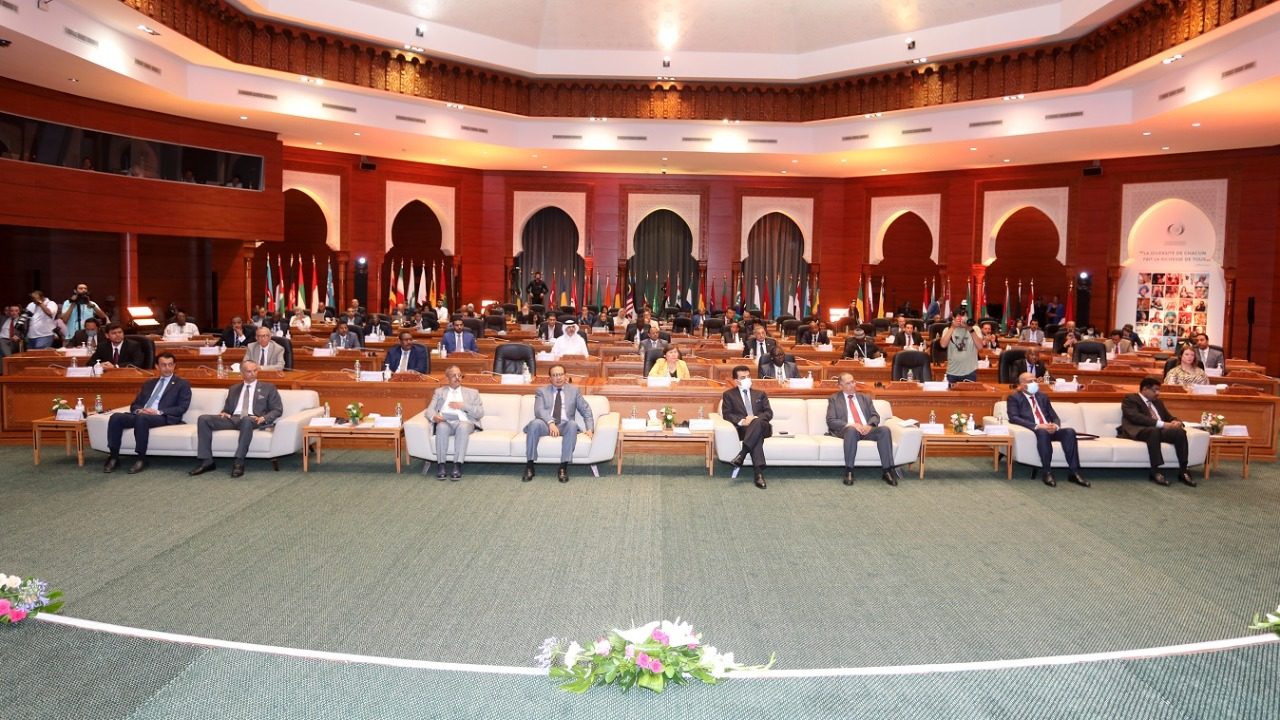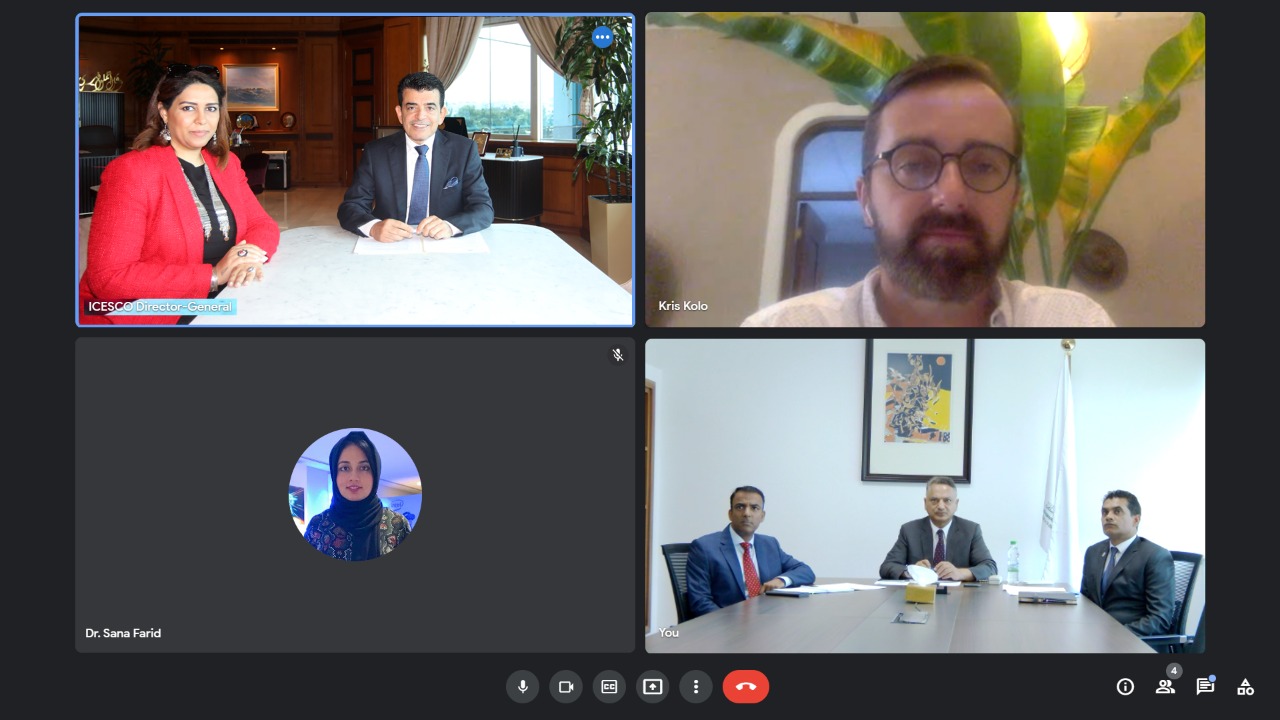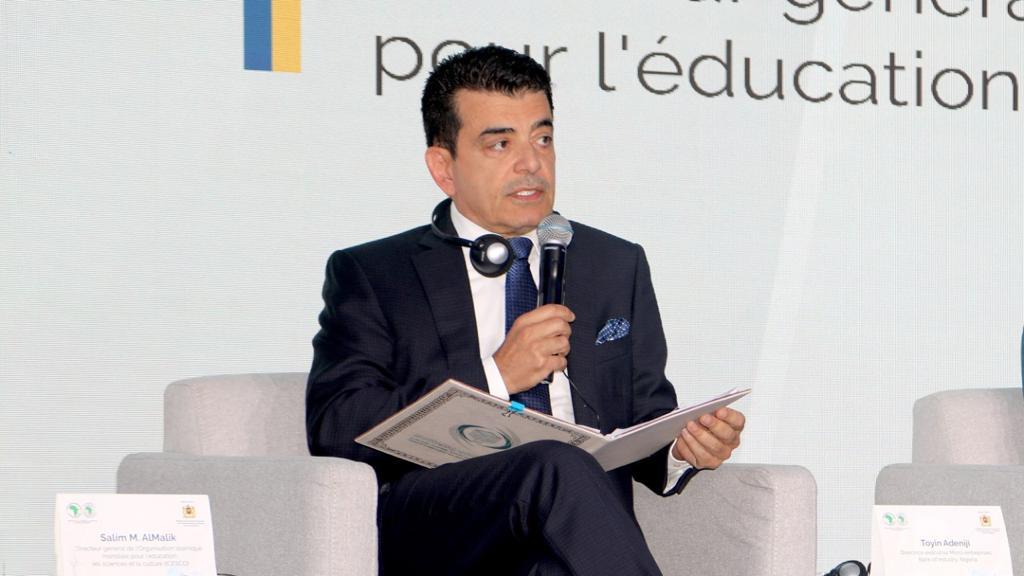The pavilion of the Islamic World Educational, Scientific and Cultural Organization (ICESCO) at the International Book and Publishing Fair in Rabat held a dialogue session on Saturday, June 11, 2022, to introduce ICESCO’s Cultural Capitals Program in the Islamic world and the reasons for declaring Rabat as Culture Capital in the Islamic world for 2022, under the high patronage of His Majesty King Mohammed VI, may Allah assist him, with the participation of Dr. Salim M. AlMalik, ICESCO Director-General, Mr. Mohamed Mehdi Bensaid, Minister of Youth, Culture and Communication in the Kingdom of Morocco, and Dr. Abdelilah Benarfa, ICESCO Deputy Director-General.
During the session, which was moderated by Mr. Najib Riati, Cultural Adviser to ICESCO Director-General, Dr. AlMalik stated that the selection of Rabat as Culture Capital in the Islamic world for 2022 is due to its literary and cultural richness and historical monuments, as it has all the components that ICESCO is looking for in Culture Capitals Program.

He pointed out that ICESCO’s Cultural Capitals Program has recently witnessed transformation and renewal since its establishment. It has become more focused on including the fields of tourism and education, and the involvement of many stakeholders to promote cultural and scientific fields.

He added that ICESCO Headquarters will witness the opening of the International Exhibition and Museum of the Biography of the Prophet and Islamic Civilization on July 25, 2022, which will be held within the framework of the celebration of Rabat as the Culture Capital in the Islamic world 2022, in partnership between ICESCO, the Muslim World League, and the Mohammadia League of Scholars in Morocco. The exhibition includes modern display technologies to narrate and document in detail the biography of our Prophet, peace and blessings be upon him. The first exhibition outside the Kingdom of Saudi Arabia will be in the Kingdom of Morocco, which indicates the distinguished relations between the two countries.
For his part, Mr. Mohamed Mehdi Bensaid highlighted the cultural radiance of Rabat and its global civilization dimension, noting that the Chellah archaeological site has hosted multiple civilizations over history.

He stressed that during this year, various cultural, artistic and musical activities will be organized with the participation of various stakeholders and that celebrating Rabat as Culture Capital in the Islamic world will contribute to strengthening the cultural industry, reviewing the Ministry’s programs, activities and initiatives to be implemented within the framework of this celebration.
Dr. Abdelilah Benarfa highlighted the cultural dimension of the city of Rabat, and that its declaration as Culture Capital in the Islamic world for 2022 restores its cultural importance, pointing out that ICESCO’s Cultural Capitals Program is one of the mechanisms for valorizing, documenting and safeguarding heritage as it builds the memory that links us to the past and the future.

At the close of the session, the floor was given to the attendees to ask Dr. AlMalik, Mr. Mehdi Bensaid and Dr. Benarfa, questions about ICESCO’s Cultural Capitals Program in the Islamic world.



